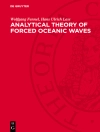This book is based on the 2014 Special Issue 124(3) of Climatic Change. It brings together 16 key papers presented at, or produced, subsequent to the 2010 (3rd) International Workshop on Uncertainty in Greenhouse Gas (GHG) Inventories. The Workshop was jointly organized by the Lviv Polytechnic National University, Ukraine; the Systems Research Institute of the Polish Academy of Sciences; and the International Institute for Applied Systems Analysis, Austria. This book has been written to enhance understanding of the uncertainty encountered in estimating greenhouse gas (GHG) emissions and in dealing with the challenges resulting from those estimates. Such challenges include, but are not limited to i) monitoring emissions; ii) adhering to emission commitments; iii) securing the proper functioning of emission trading markets; and iv) meeting low-carbon or low-GHG futures in the long term. The approaches to addressing uncertainty discussed by all authors attempt to improve national inventories, not only for their own sake but also from a wider, systems analytical perspective that seeks to strengthen their usefulness under a compliance and/or global monitoring and reporting framework. These approaches show the challenges and benefits of including inventory uncertainty in policy analysis and where advances are being made.
Jadual kandungan
From the Contents: Uncertainties in greenhouse gases inventories – expanding our perspective.- Uncertainty in an emissions-constrained world.- Changes in European greenhouse gas and air pollutant emissions 1960–2010: decomposition of determining factors.- Analysis of change in relative uncertainty in GHG emissions from stationary sources for the EU 15.- Compliance for uncertain inventories via probabilistic/fuzzy comparison of alternatives.
Mengenai Pengarang
The Editors Jean Pierre Ometto, Rostyslav Bun, Matthias Jonas and Zbigniew Nahorski are senior scientists coming from different backgrounds. They work for Brazil’s National Institute for Space Research, the Lviv Polytechnic National University in the Ukraine, the International Institute for Applied Systems Analysis in Austria, and the Systems Research Institute of the Polish Academy of Sciences. Their book shows that uncertainty matters and it is key to many issues related to inventorying and reducing emissions. Dealing proactively with uncertainty allows useful knowledge to be generated that the international community should have to hand before negotiating international successor agreements to the Kyoto Protocol.












